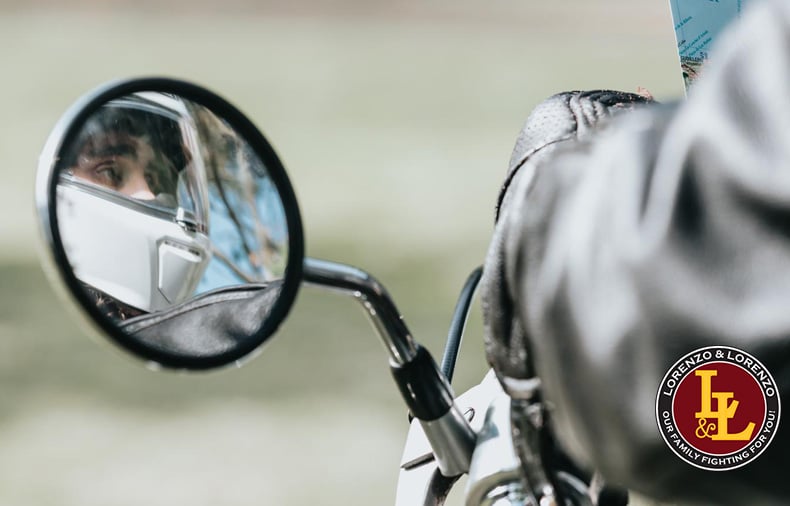
Everything you need to know to protect yourself and your motorcycle
Florida’s warm climate and scenic landscape make the Sunshine State the perfect setting for a motorcycle trip. Although Florida differs from most other states by not necessarily requiring all motorcycle owners to have insurance, it’s important to fully understand the risks associated with riding uninsured.
Motorcycle riders are more likely to sustain serious injury in the event of an accident. Therefore, those who do not have insurance place themselves at much greater financial risk.
This article will discuss the potential costs associated with driving a motorcycle with and without insurance in Florida.
5 Important Motorcycle Safety Tips
When riding your motorcycle, following these safety tips could help you avoid a serious accident.
Unique challenges faced by Florida motorcycle owners
Some may be tempted to opt out of getting motorcycle insurance as a means of saving money or exercising their legal right to go without. Nevertheless, motorcycle riders face several unique challenges that make purchasing insurance a wise decision.
Uninsured and underinsured drivers
Although drivers are required to have auto insurance, approximately 1 in 8 Florida drivers don’t carry auto insurance. Additionally, more than 1 in 5 motorcycle riders who are involved in a negligent accident caused by an uninsured driver sustain a serious injury.
This means that if an uninsured driver causes an accident that injures a motorcyclist, the motorcyclist may have to rely on their own motorcycle insurance policy to cover their resulting injuries and motorcycle damage.
Unpredictable Florida weather
Midday rain showers are common across Florida. Even less severe rain storms can obscure visibility and cause slippery road conditions. Sudden inclement weather can be especially distracting to motorcycle riders.
Ideally, motorcyclists are able to take up shelter and wait until the weather clears up before returning to the road. In reality, there are times when riders have to travel through inclement weather to get to a safe location.
Florida’s frequent storms make conditions even riskier for uninsured motorcycle riders.
Sunlight that reduces visibility
Florida’s bright, sunny weather is one of the many characteristics that attract residents and visitors to the state, but bright sunlight also decreases visibility on the road.
Motorcycles occupy just a small portion of a driver’s visual field. The bright glare from the sun can reflect off of a vehicle’s mirrors, making it more difficult for a driver to see a nearby motorcyclist. Because of this, very bright conditions may also increase the risk of a vehicle-involved motorcycle accident.
Heavy traffic
Many tourists who come to Florida drive or ride motorcycles. Increased traffic may make local motorcyclists feel safer because congested traffic moves much slower. On the contrary, the risks go up for motorcycle riders as they are more likely to share lanes in heavy traffic.
People in most of Florida’s metropolitan areas experience daily gridlock, especially during peak travel times. It only makes sense for riders to add a layer of financial protection by carrying motorcycle insurance when riding on Florida’s congested roads.
Florida motorcycle riders are not required to wear a helmet
Florida does not require motorcyclists who are over 21 to wear a helmet if they carry motorcycle insurance. The state does require motorcycle riders to wear protective eyewear.
The state’s motorcycle law may seem peculiar, but it subtly encourages motorcycle riders to think about the injuries that may occur in a motorcycle accident. Requiring a helmet reduces the risk of head injury for those who do not carry insurance, which would provide compensation for medical treatment in the event of an accident.
By waiving the helmet requirement for those who carry Florida motorcycle insurance, the state “rewards” those who invest in financial coverage that would pay for medical expenses if they were to sustain a severe injury.
Bear in mind that motorcycle insurance doesn’t protect motorcycle accident victims from head trauma and other catastrophic injuries—just the financial costs associated with them, so it’s in every Florida motorcycle rider’s best interest to wear a protective helmet.
Do you need motorcycle insurance in Florida?
Florida does not automatically penalize motorcycle riders for not having motorcycle insurance. However, riders who do not show proof of financial responsibility in the event of an accident may be subjected to penalties.
Motorcycle riders may prove financial responsibility by doing one of the following:
- Showing proof of liability insurance
- Providing a self-insurance certificate, which states the rider has money to adequately cover someone else’s injuries if the motorcyclist causes an accident
- Providing a financial responsibility certificate, which states the motorcyclist has provided the state with a certificate of deposit of $30,000 and power of attorney over the deposit
The state does not require proof of financial responsibility to register a motorcycle. However, law enforcement may request proof of financial responsibility from a motorcycle rider during a routine stop.
Potential penalties for not having insurance or other means to pay after an accident
If a motorcyclist is involved in an accident and they are uninsured or can’t afford to pay for damages, the following penalties may result:
- The state may suspend the motorcyclist’s driving privileges, tag and registration.
- If the state does not suspend the individual’s driving and motorcycle privileges, the motorcyclist may be required to purchase liability insurance for a maximum of 3 years.
- Motorcycle riders who cause damage or injury to someone else in an accident may become the subject of a civil court lawsuit and be ordered to pay the other person for their damages.
What should Florida motorcyclists do in the event of an accident?
Below are the steps you should take after a motorcycle accident in Florida to protect your right to compensation:
- Call the police. Motorcycle riders who are involved in an accident should first call the police so there will be a report detailing the accident. The police can help you collect evidence and gather witness statements. Their report will also make it easier to establish fault.
- See a doctor. After you give the police your account of the accident, you should immediately get examined by a medical professional to rule out potentially severe injuries. Failure to do so soon after your accident can negatively impact your ability to collect compensation.
- Contact a lawyer. Your next step after leaving the hospital or urgent care should be to contact an experienced Florida personal injury lawyer who specializes in motorcycle accident cases. The attorney will be able to help you:
- Understand your rights and explore options for seeking compensation
- Examine your insurance coverage and file a claim on your behalf
- Seek the necessary medical attention without being required to make payments before receiving your settlement
- Understand and negotiate your hospital bills
- Focus on your recovery while your legal advocate works on your behalf to receive the maximum compensation allowed
Get help from an experienced Florida motorcycle accident attorney
Unfortunately, even if you purchase motorcycle insurance and take all the necessary safety precautions, accidents still happen. And when they do, it’s critical that you have a motorcycle accident attorney on your side to ensure you get maximum compensation for your injuries.







